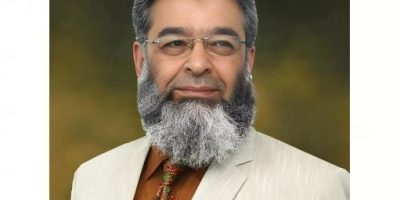Israel-Palestine Conflict: Time for the youth to takeover

Ibraheem B. Mahmood
What seems a contentious and controversial topic for many, in which both sides of the conflict claim a parcel of land that dates back to when neither parties were even born, actually has a straightforward and simple solution. In this article I hope todelineate blunders and errors made and more crucially three credible and reasonablesolutions which (hopefully) leaves both parties in a healthier position than the one they currently find themselves in now.
You may believe its easy for a British Muslim in his youth to sit back and highlight all the blunders made from both sides of what seems a perpetual war, and you’re right, it is. But the sullen fact is if you were to have an elder Israeli and Palestinian engage in a rational, coherent, and logical conversation with each other, it is extremely probable that it would descend into chaos with both parties trading invectives and quarrelling over who truly possesses that land. It has become gradually more evident to me over the last two years that elder generations from both sides have drastically failed to make any progress on any aspects of the conflict. Just to put some facts of the conflict into perspective, the non-profitorganisation “Stand with Us”stated,Hamas have indiscriminately fired over 4,465 rockets at Israel’s heartland, including densely populated cities such as Jerusalem and Tel Aviv and their civilian structures, during Protective Edge. Over 70% of Israeli citizens were in rocket range.Even Palestinian officials acknowledged Hamas’ rockets may be war crimes. “Each and every missile against Israel constitutes a crime against humanity whether it hits or misses, because it is directed at civilian targets.”–Palestinian Envoy to the Human Rights Council, July 9, 2014.7
On the opposing end, Amnesty International has stated Israel during the armed conflict in May2021, committed apparent war crimes and possible crimes against humanity in the Gaza Strip. According to the OHCHR and the W.H.O., 242 Palestinians were killed, including 63 children, and some 9,000 were injured. More than 74,000 Palestinians were displaced. These statistics are a mere scratching of the proverbial surface. The list of tit-for-tat crimes could extend to several pages. In the backdrop, one must also acknowledge the role of spin doctors leading to media soundbites, the war of words, and the dissemination of misinformation, which fuels emotions and anger across both sides of the conflict.
I state these facts not in any way to assess or contrast the effects it has had or who has committed war crimes and who has not. Committing one war crime does not make you any better than someone who has committed multiple, and in the specific case of this issue both sides of the conflict have committed copious amounts of war crimes over the last 50 years. I state these facts to present and showcase the lack of maturity, the absence of concern for humanity and how it is time for the youth to step in and transform the turmoil and have a safer more amiable middle east.
How dowe achieve this? Well, I would like to present three solutions, which in isolation may not work but in unison begins to chalk out plans towards peace and prosperity. Thepotential solution is fenced by disagreements. Ultimately, I believe the best solution is one in which both parties feel they have gained some ground, whilst giving up in other areas. That said, the proposed solution must have an undertone in which all parties can practise their religious doctrines without the fear of brutality, aggression and bloodshed, a basic human right.
Firstly, we must agree that both parties have a right to a state, and that both have a claim,religiously, to the city of Jerusalem.In addition to a two-state solution, Jerusalem, is given a special status and is managed distinctively from an administrative perspective. My reasoning for this solution is because all major faiths, Islam, and Judaism along with Christianity have religious ties to Jerusalem. It is impossible for one party to gain sole ownership of this city without the others feeling aggrieved. A joint council is elected to manage the operational and administrative affairs of the holy city. This means equal representation of all three major faiths and should also include minorities – sound governance is key. This council makes decisions which safeguard the interests of the holy city, protects worshippers, manages the economic, social, and cultural affairs of the holy city and residents who choose to reside here. Citizens of the holy city are granted a special colour coded passport where they can maintain dual citizenship of, let’s say, Israel and be residents of the holy city. This allows such citizens to travel in-and-out of their preferred nations whilst also holding on to their Israeli or Palestinian citizenships. Equally, citizens of both Israel and Palestine have the right to travel in-and-out of the holy city, as they see fit.
Secondly, there must be a universal acceptance and recognition of Israel as a state, especially amongst the Muslim nations. Someone, with very strong leadership needs to step in and encourage all stakeholders to draw a line on the past. I know this is a highly contentious point (especially when Iran openly talks about annihilating and removing Israel off the map), but honestly, I don’t believe it should be. Non sequitur, imagine a world, where Israel – as it stands today – is bombed back to the stone age and the Jewish citizens expelled. Where will they go? As someone who identifies themselves as a practising Muslim, it is impossible for me to comprehenda world where this could even be contemplated. Equally, what hope is there for the future of Israel if Palestinians continue to live as they are – in an open-air prison – besieged by Israeli armed forces and regularly having their properties seized by Jewish settlers, leaving many Palestinians displaced. With no future prospects, our Israeli brothers and sisters will soon need to acknowledge that unless the Palestinians are granted their human rights, the Muslim world will simply not relent. If this stand-off continues, we could be here in the year 2123, still talking about this impasse.
My third point is the role of universities and think-tanks can play in building bridges between Palestinians and Israelis. Universities across the world should be open to organising summer-camps which actively encourage students from both nations to visit. These four-week courses provide a safe and convivial environment for such students to engage in social, cultural, and political issues impacting the region and the world at large. These four-week courses also allow students to build life-longfriendships within the classroom and helps students buildnetworks for future diplomacy and even commerce.
Think-tanks, also have an essential role in organising symposiums and summits which encourage trade, joint research campaigns and knowledge sharing initiatives between Israel, Palestine, and the wider Muslim world. Applied research projects can be formed to help build blue printswhich will assist in solving many issues impacting continents and nations across the world. It deeply saddens me, that Muslims, Christians, and Jews across the world share so much rich history and that this is not translated into a force for good.
I believe nations like the USA, could best direct their military aid to Israel to such initiatives which over time can help build and foster life-long friendships and respect amongst nations. The Abraham Accord has shown a small glimpse into what peace treaties can achieve. The United Arab Emirates, by way of an example, will soon be able to reap the benefit of attracting a fresh wave of investment in financing, knowledge, and innovation. Showing more tolerance, is the bedrock of teaching amongst the Islamic, Christian and Judaismfaiths, so what are we waiting for?
The time for conflict is over. Too many have endured grief and misery, and it is now time for the future leaders of the world to step in and ensure the peace and protection of all citizens. A stable middle east, led by peace in the holy land will set a benchmark for other regions of conflict. It’s time for the youth to think about what type of future we want to chalk out. A world underpinned by tolerance, intellectual debate, and friendship – where we explore eachother’s ways of life, beliefs, food, and culture – sounds much appetising to me!
Ibraheem B. Mahmood is a student of Langley Park Sixth form (London, UK) and is currently engaged in his A Levels. Ibraheem has a passion of global economic development and wishes to pursue a career in financial services specialising in the field of ESG development.
Related News

3 key players of Pak national hockey team seek political asylum in Malta
The team’s goalkeeper, Akmal, declined to be part of the squad selected for the 2024Read More

The True Price of Peace: Understanding the Pain of a Martyr’s Family
By Muhammad Mohsin Iqbal In the course of life, there is one inevitable truth thatRead More


Comments are Closed